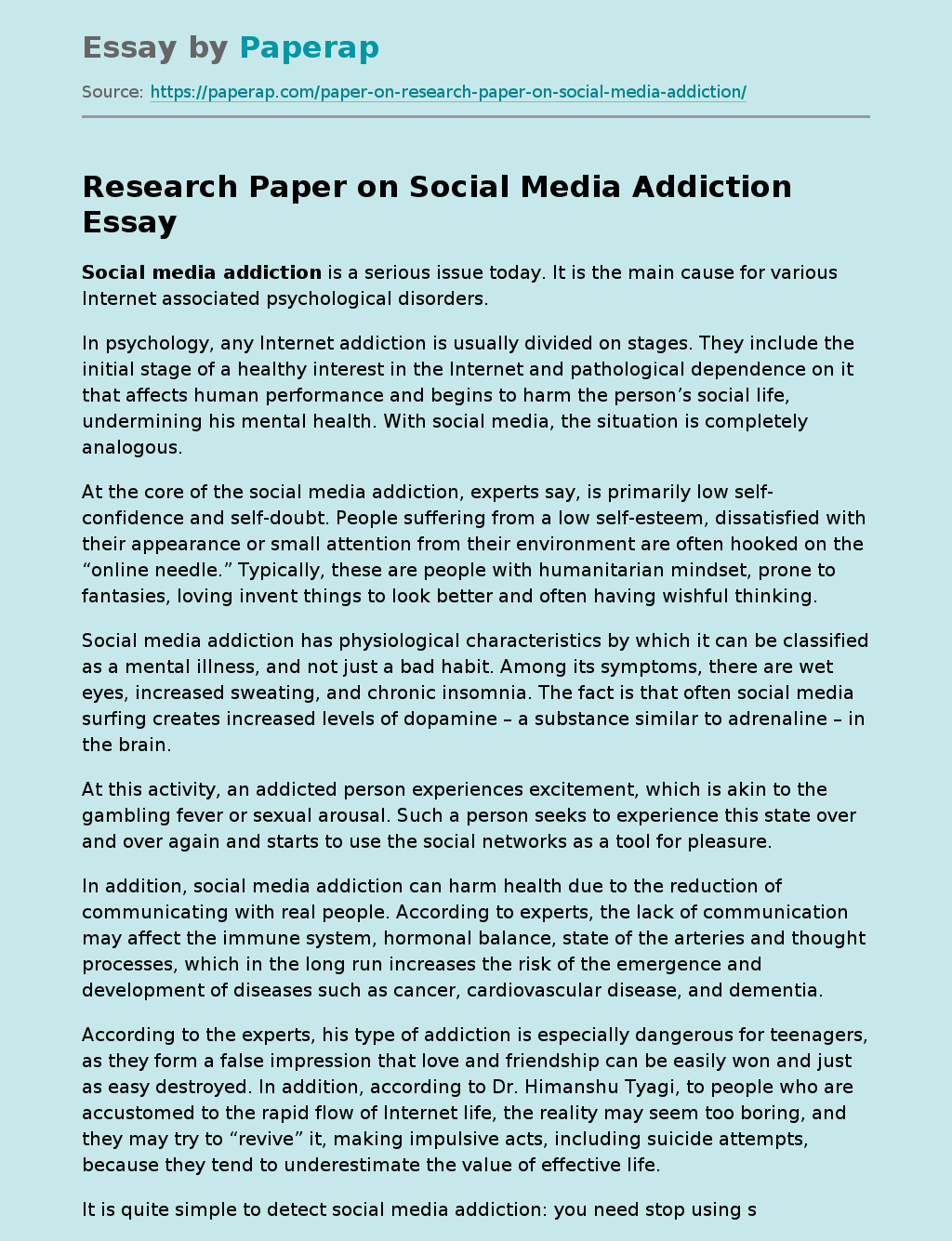Research Paper on Social Media Addiction
Social media addiction is a serious issue today. It is the main cause for various Internet associated psychological disorders.
In psychology, any Internet addiction is usually divided on stages. They include the initial stage of a healthy interest in the Internet and pathological dependence on it that affects human performance and begins to harm the person’s social life, undermining his mental health. With social media, the situation is completely analogous.
At the core of the social media addiction, experts say, is primarily low self-confidence and self-doubt.
People suffering from a low self-esteem, dissatisfied with their appearance or small attention from their environment are often hooked on the “online needle.” Typically, these are people with humanitarian mindset, prone to fantasies, loving invent things to look better and often having wishful thinking.
Social media addiction has physiological characteristics by which it can be classified as a mental illness, and not just a bad habit. Among its symptoms, there are wet eyes, increased sweating, and chronic insomnia.
The fact is that often social media surfing creates increased levels of dopamine – a substance similar to adrenaline – in the brain.
At this activity, an addicted person experiences excitement, which is akin to the gambling fever or sexual arousal. Such a person seeks to experience this state over and over again and starts to use the social networks as a tool for pleasure.
In addition, social media addiction can harm health due to the reduction of communicating with real people. According to experts, the lack of communication may affect the immune system, hormonal balance, state of the arteries and thought processes, which in the long run increases the risk of the emergence and development of diseases such as cancer, cardiovascular disease, and dementia.
According to the experts, his type of addiction is especially dangerous for teenagers, as they form a false impression that love and friendship can be easily won and just as easy destroyed. In addition, according to Dr. Himanshu Tyagi, to people who are accustomed to the rapid flow of Internet life, the reality may seem too boring, and they may try to “revive” it, making impulsive acts, including suicide attempts, because they tend to underestimate the value of effective life.
It is quite simple to detect social media addiction: you need stop using social networks for some time, such as month, and if there is no problem with such an abstention, there is no addiction, if there is irresistible desire, there is possibility of the addiction.
In the fight against the social media addiction in educational and business institutions such services are restricted. The is a bunch of various software which allows to easily restrict access to such services.
Free sample research paper on social media addiction is a good start for non-experienced writer.
Research Paper on Social Media Addiction. (2018, Dec 28). Retrieved from https://paperap.com/paper-on-research-paper-on-social-media-addiction/

